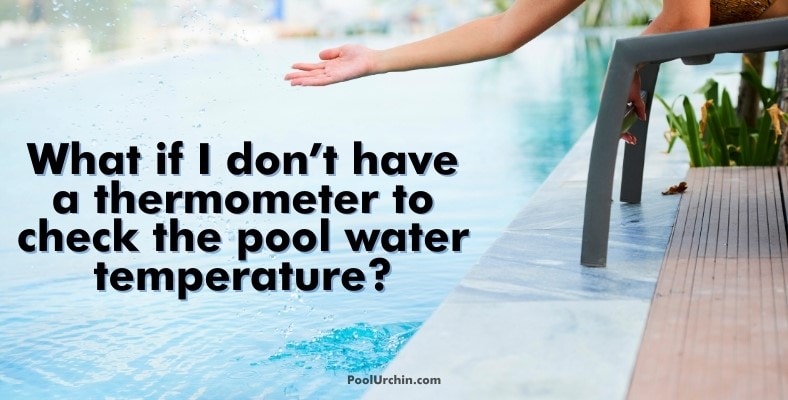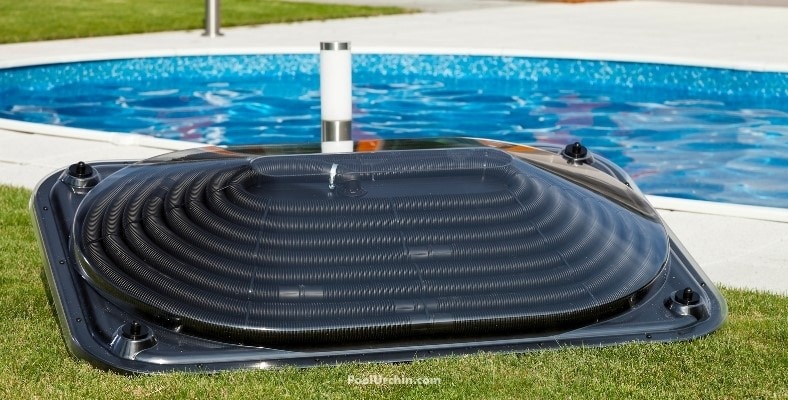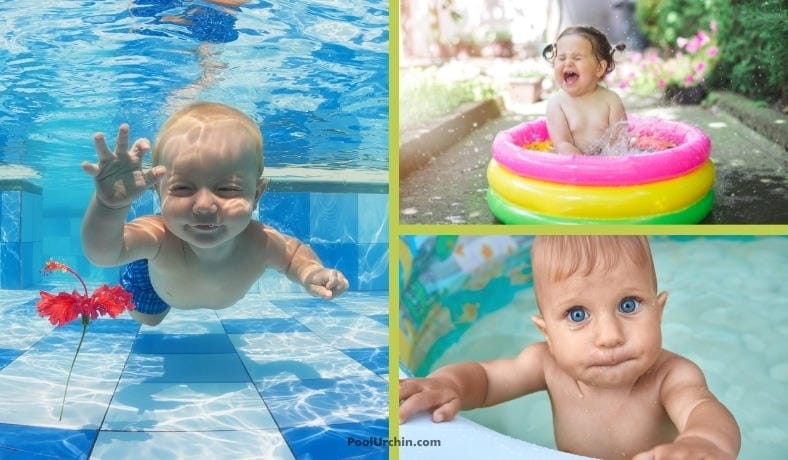What temperature should a baby pool be?

When it starts to get warm outside, and your baby is at least six months old, you may think about taking them with you for a trip to the pool. Remember that babies have especially sensitive skin, and they don’t regulate their body temperature like adults can.
You’ll notice that their temperature can go up and down depending on the environment. Before you let them enjoy a kiddie pool, you should test the water first. If it feels cold to you, it’ll be even colder for your baby.
If you want to take your baby swimming, the ideal pool water temperature is 85°F-89°F (29.5°C-31.5°C). You may see recommendations that are one or two degrees higher, but this is the general range.
In the instance that your baby is in the swimming pool and they start shivering, you need to take them out immediately.
Always make sure your child doesn’t get into the overly warm pool water or anything like a hot tub. Remember, a baby’s skin is 20%-30% thinner than an adult’s. That is why it’s essential to ensure the water isn’t too hot or cold for them.
What if I Don’t Have a Thermometer to Check the Pool Water Temperature?

In case you don’t have a pool thermometer handy, you might want to test the pool temperature with your hand or elbow. The water shouldn’t be as hot as it needs to be in the bathtub, but it should still be relatively warm.
The back of your hand should suffice, though some people still live by the “elbow test.” Either way, it’s crucial to use your skin to see if the water feels hot to touch or too cool. Never put your baby in if you’re unsure.
What Are the Risks of Taking a Baby in a Pool?

Water safety is a critical element of taking a baby or a young child to swim or play in the pool.
A young baby or toddler can overheat quickly, and if the pool temperature is too warm for them, it can cause scalding (burns) and a racing heart, amongst other health dangers.
If the water temperature is too cold, it can lead to hypothermia, which is equally dangerous for our little ones.
Aside from these issues, the most significant risk when taking a baby into a pool is drowning.
Unfortunately, drowning is amongst the leading causes of death for children aged 1-4, with young children aged 12 months-36 months most at risk.
How to Prevent Drowning
Make sure you take flotation devices with you when you go swimming with babies and small children. This includes floating rings (donuts), water wings, lifejackets, and so on.
Always keep your children, especially small babies, within arm’s reach. It only takes a few seconds and one inch of water for a snack child to drown. They should never leave your sight.
Should I Use a Pool Heater?

Pool heaters are an excellent option to ensure that the pool water is warm enough for your baby. It removes water from the pool and deposits it into the heating tank.
From there, it returns warmer water to the pool. This should keep the pool at a comfortable level for you and your baby if you’re concerned. It could be a good investment if you like to take your little one to play in the water from time to time.
Recommendations For Keeping a Baby or Toddler Safe in Water
- Again, never leave your child or infant unsupervised in a pool; they also should not be left with other children
- Keep your phone, towel, and any other essential items next to you, so that you don’t need to leave the area with your child unattended
- Don’t let your baby stay in the pool water for more than ten minutes at a time when they’re younger than one year old (you should take them out to earn them with a blanket periodically)
- Don’t take a baby that had diarrhea into the pool; the fecal contamination could cause a severe infection
- Install a fence on all sides of the pool if it’s in your backyard

